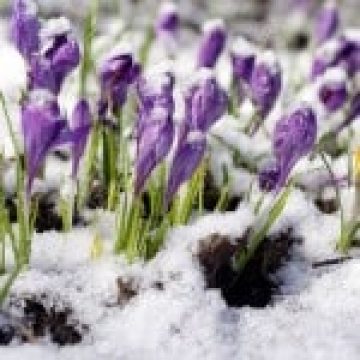 I became a feminist when I was 24 years old.
I became a feminist when I was 24 years old.
I had graduated from college, been promoted to a new position and flashed a fresh-from-the-velvet wedding ring. In a window of time between waiting and settled, I decided to take a class at the local State University. After looking over my options, I signed up for a mythology course. I had been interested in Greek mythology for obvious reasons since childhood and had taken a traditional primary text class as an undergraduate. I thought that “Mythology and Women’s Studies” sounded like a provocative continuation. In my naivete, I assumed that the “women’s studies” part meant that we would spend more time talking about Hera than Zeus.
This classroom was the threshold of an education that would begin in Salt Lake City, Utah, move to Cambridge, Massachusetts, and burrow deep, changing me. In that class something shifted, and I am certain that I know the exact moment. The exact story. I thought I had read the following story a million times before. It is a common myth. But I learned there was another version, an original, a pre-Hellenic scrap from the perspective of an agricultural, matriarchal-based society. The story I thought I knew may have been written much later.
Here is the older story I remember from that class almost 30 years ago. I am not able to attribute the source, but part of me doesn’t want to do the research. It has taken on a truth, a mythic significance, that belies accuracy. This is the story that now lives in my head, my retelling:
Once upon a time when Gaia the Mother was young and humans had only just been created, the Gods walked between Heaven and Earth and cared nothing for the mortals beneath their feet.
Demeter was the Goddess of green plants, wild and tame, and her daughter Persephone was as beautiful and powerful as her mother. Together they tended the living things and taught weak humans to cultivate through work what the immortals could bloom with a kiss. Persephone glided between furrows of corn and combed the cherry branches with her fingers and the humans loved her quiet strength and kindness. She alone would speak to them and they replied with eyes cast down for she was as bright as the sun.
One day she approached a group of humans crying and clutching each other as they knelt beside a fallen comrade. Persephone asked why they were so sad and they replied, “Our brother has gone to Underworld where it is dark and cold and we will never see him again. We are sad to lose him, and also sad for him, because he will be alone.”
Persephone felt compassion for these humans. Their lives were so difficult and fragile and they had nothing but darkness and cold to look forward to when their short lives ended. Persephone decided that she would go, and search for the Underworld, and she would take her light and warmth to the dead who lived there. So she left the green fields of her mother’s land and walked to the edge of the world. There she found a cave and a tunnel and she descended deep into the earth. The light that surrounded her emanated into the dark before her. Persephone’s light expanded and filled the caverns where the dead huddled. As her light touched their dead eyes, they saw Persephone and they saw each other, shadows of people they had once loved. They were not alone anymore. The dead drew near to Persephone’s light and she comforted them.
Above, Demeter searched for her beloved daughter, calling her name across a silent and empty sky. As her panic grew, the grass withered, the trees dropped their leaves and all the living and green plants cowered brown in fear. The air froze as grey smothered blue and the world was barren. Demeter’s heart was broken, her grief overwhelmed her. For months she searched and found no sign of Persephone. The humans began to starve, but she did not listen to their cries. The other Gods begged her to stop searching, to use her power to cover Mother Earth once more in beauty and life, but Demeter refused and dared anything to grow in her presence.
Seven months passed and Demeter sat on a stone in a field of dirt and ice, her head down, her long hair covering her face. Then she heard something far away. A murmur. A whisper. But she could not understand the words. At her feet a tiny green shoot curled around her ankle. She stomped on it. Who would disrespect her pain! She raised her arm to destroy but there was another green tendril and another and the whisper came closer and finally the wind rushed to ears and said, “Persephone returns, Persephone returns.” There in the distance came the glow, the dawn, the bright beautiful daughter running to meet her.
Demeter ran to Persephone and they embraced and danced a dance of reunion. Everywhere their feet touched the ground, crocuses bloomed and the world sprang to life. Demeter and Persephone danced round and round and the world sang joyfully “Persephone returns, Persephone returns.”
Persephone told her mother where she had been and why she had left without an explanation. She knew Demeter would never have let her go. Persephone told her mother that she would return to the world of the dead for seven months out of every year to comfort them and tend to their needs. The other months she would help her mother care for the living. In this way, they could together bring hope to all humankind.
Demeter could not stop her daughter from returning to the Underworld. She could not tell Persephone where or how to use her power. But she could not deny her own grief. To this day, when her beloved daughter is not beside her, Demeter mourns. And the world mourns with her. Then on the first day of spring, when the crocuses bloom and the wind sings, ‘Persephone returns, Persephone returns,” Demeter is happy again, and the world is reborn.
I had only known Persephone as a victim, kidnapped by Hades, tricked into servitude, trapped by seven pomegranate seeds of desire. Here she is a Messiah. She chooses to go below. She rules the Underworld because she alone is compassionate enough to brave the dark. Her relationship with her mother is deep, equal and raw. We champion Persephone’s empathy and activism and we identify with Demeter’s loss and sorrow. These are women with ancient power in their voices, and when they called to me, I listened.
Who was I? A sheltered young woman suddenly in an open space, teetering in front of a door that opened toward a more complicated life. There were other doors. There were other lives. But I heard the whisper in the spring wind and stepped through to my story. I walked as Persephone would walk, carrying my own light.




14 Responses
This is beautiful, thank you for sharing.
xox
This is really beautiful Pandora! I’ve never heard this version of the story. It’s far better than the story about the rape of persephone. I just read this myth to my kids, and now I think I’ll read them your post. Do you know how the myth came to be changed? I find it really interesting how when a male voice takes over a story, women in the stories tend to lose their empowerment.
My understanding – and there is plenty of archaeological evidence and scholarship around this – is that there was a civilization that lived much earlier than the Greeks and they had their own set of myths and illustrations. They were an agrarian and matriarchal society. When they were conquered, the more patriarchal Greeks appropriated their stories (much like the Romans later did to the Greeks) and changed the perspective to be male and more aggressive. Thus Persephone gets taken. This is an elaboration (a midrash really) on one of the more ancient versions of the story.
That’s fascinating! What a fabulous class that must have been.
I love this so much. I’m going to share it with my girls
This is such a wonderful version of the story — I love your description of its impact on you. Just goes to show the power of having strong, agentive, thoughtful, female figures to look to in our myths or sacred stories.
Yes! I’ve always loved the story of Persephone and have spent many daydreams thinking about alternative ways to tell it. How fitting to use this – of all myths – as an awakening. Thanks for sharing!
I don’t know why exactly, but this set me to crying. Just the idea that all the stories we know are tainted, twisted to reduce women to something weaker, more invisible, just as this one was taken and twisted gives me both hope and despair. I want to have hope that we just have things wrong, and that the real truth is more glorious and lovely than we can imagine. But all I have is the current narrative.
thank you for sharing this.
All the stories? I don’t think so. There are many stories of courageous, thoughtful leading women. Some are tainted, some are not and some people seem to hope are tainted so they can not believe them.
not in our scriptures. just as small tiny handful. often nameless, and all written from the perspective of men. certainly not in the temple. I am also talking all the stories where women are 100% erased, like the creation, the war in heaven.
Your post and this story have feed my soul today. Thank you!
Simply lovely and empowering. Thank you for sharing this version, my friend.
This was so, so lovely, and so nice to think about. Thank you. Thank you.
I love this. Thank you.